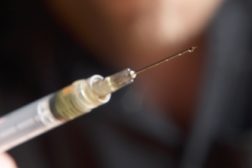Workplace Health
ISHN Healthwatch: E-prescribing useful, but needs improvement
Study finds renewals problematic
November 22, 2011
Never miss the latest news and trends driving the safety industry
eNewsletter | Website | eMagazine
JOIN TODAYCopyright ©2024. All Rights Reserved BNP Media.
Design, CMS, Hosting & Web Development :: ePublishing








